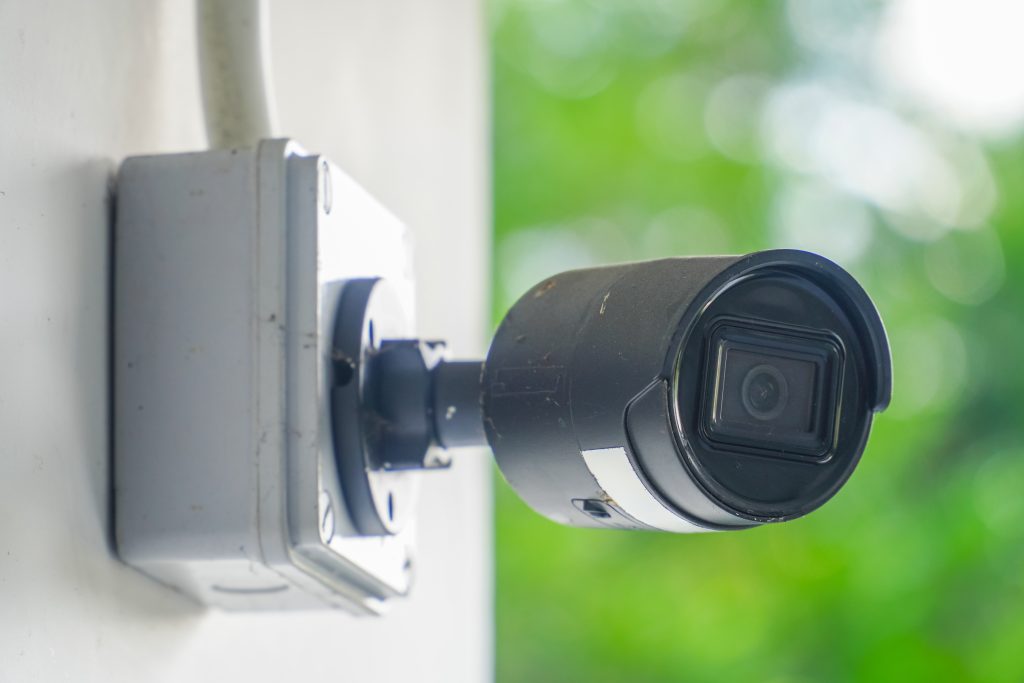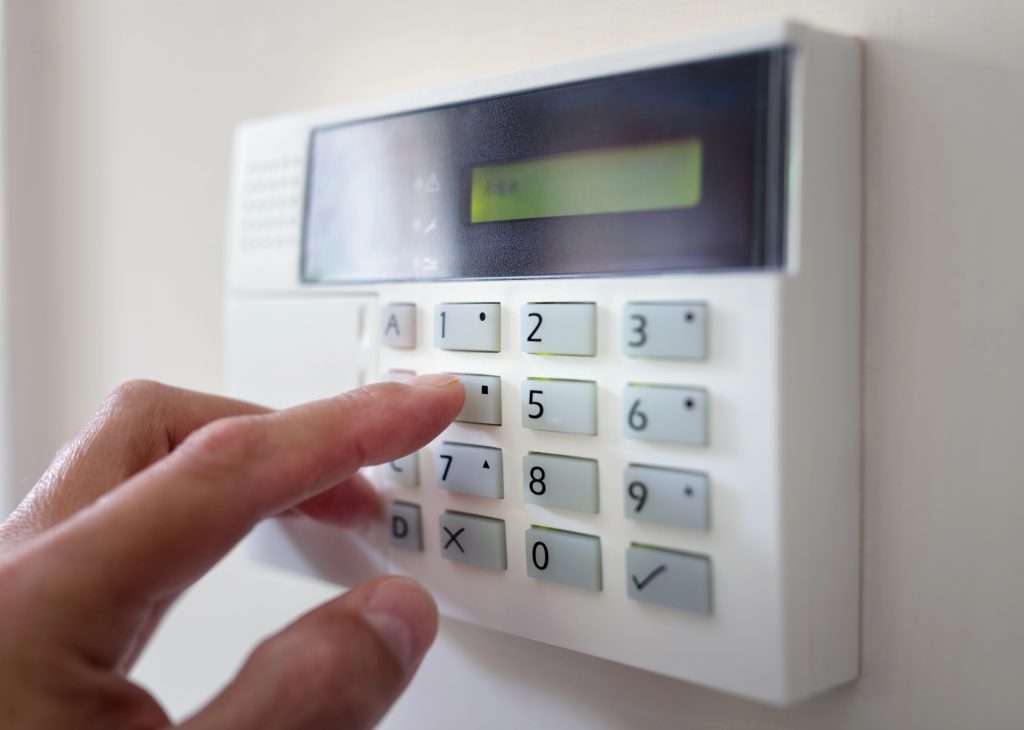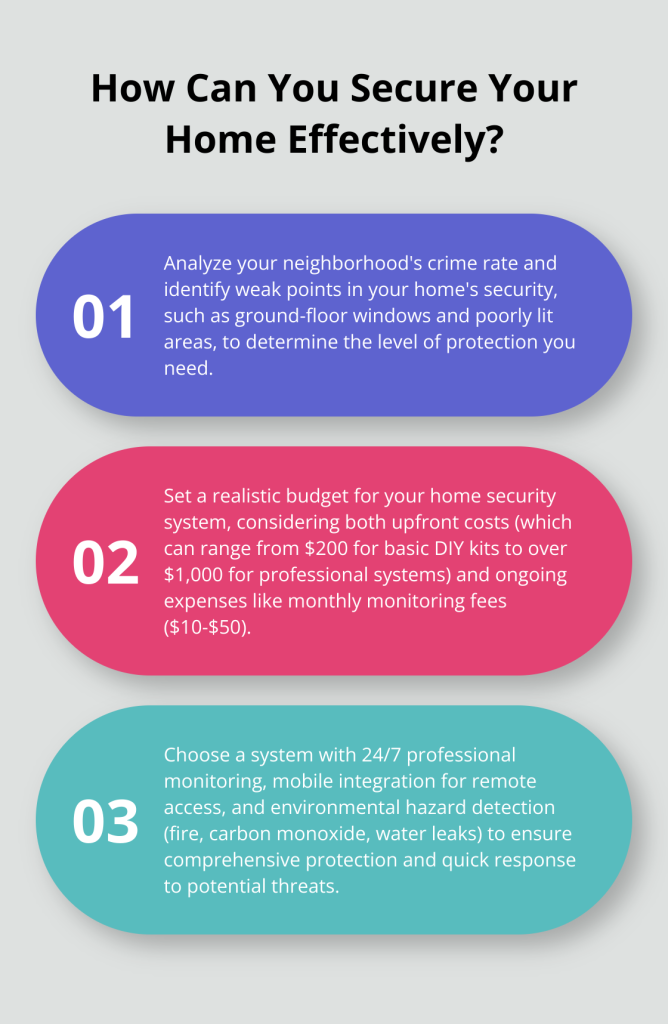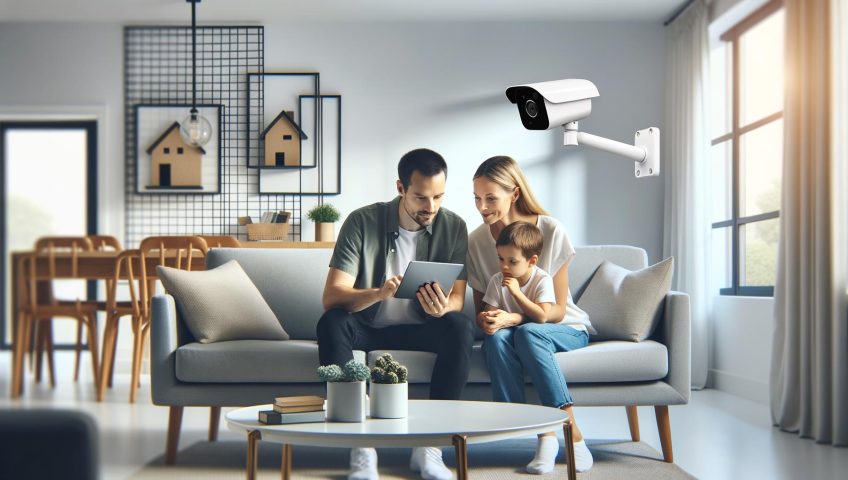At ROS Electric LLC, we understand the importance of protecting your home and loved ones. Choosing the right home security system can be overwhelming with the many options available today. In this guide, we’ll walk you through the essential factors to consider when selecting a home security system that fits your unique needs and budget. We’ll cover everything from assessing your security requirements to exploring different types of systems and key features to look for.

What Are Your Home Security Needs?
Analyze Local Crime Statistics
Start by researching your neighborhood’s crime rate. The FBI’s crime statistics estimates for 2022 show that national violent crime decreased an estimated 1.7% compared to 2021 estimates. Knowledge of your local risk helps determine the level of security you need.
Identify Weak Points in Your Home
Walk around your property and look for potential entry points. A study by the University of North Carolina at Charlotte found that 60% of burglars avoid homes with security systems. Pay special attention to ground-floor windows and doors. Consider factors like poor lighting or overgrown shrubs that might provide cover for intruders.
Evaluate Your Daily Routines
Your lifestyle significantly impacts your security needs. If you travel frequently or work long hours, you might benefit from a system with remote monitoring capabilities. Families with children might prioritize features like doorbell cameras to keep an eye on kids coming home from school.
Set a Realistic Budget
Home security systems vary widely in price. Basic DIY kits can start as low as $200, while comprehensive professionally installed systems can cost upwards of $1,000. Don’t forget to factor in ongoing costs like monthly monitoring fees (which typically range from $10 to $50 per month). According to Consumer Reports, security system companies often advertise that their systems start at just $200, $300, or $400, but the reality is that you could easily spend more.
The most expensive system isn’t always the best fit. Focus on finding a solution that addresses your specific needs without breaking the bank. A professional security company can help you navigate these choices to find the perfect balance of security and affordability for your home.
Types of Home Security Systems Available
Wired vs. Wireless Systems
Wired security systems have more reliable signals, whereas wireless systems provide a more streamlined installation and can be used in places where wired systems cannot. These systems connect directly to your home’s electrical and telephone lines. Installation requires professional expertise and can be more invasive.
Wireless systems have gained popularity due to their ease of installation and flexibility. They use radio frequencies to communicate between components and a central hub. Renters and those planning to move find these systems particularly appealing. However, they may experience interference and need regular battery replacements.
Smart Home Integration
Modern security systems often extend beyond basic alarms. An integrated smart home-security system is composed of various elements, including sensors that detect motion or entry, surveillance cameras, alarms, and control devices. This integration enables advanced automation and remote control via smartphone apps.
For instance, you could create a routine where your doors lock automatically, lights turn off, and the security system arms itself when you leave for work. These systems offer convenience and enhanced control but may require a larger initial investment.
Video Surveillance Options
Video surveillance has become more affordable and sophisticated. Options range from simple doorbell cameras to comprehensive multi-camera systems that cover every angle of your property. Many systems now feature night vision, two-way audio, and AI-powered person detection.
Cloud storage for video footage has become common, but be aware of potential ongoing costs. Some systems (like Arlo or Nest) offer limited free cloud storage with paid tiers for extended storage times.
Access Control Systems
Access control systems provide advanced entry management for those seeking an extra layer of security. These systems range from simple keypad locks to biometric scanners. They prove particularly useful for homes with multiple entry points or for those who frequently need to grant access to service providers or guests.

Essential Features for a Robust Home Security System
Round-the-Clock Professional Monitoring
Professional monitoring provides an extra layer of protection. The FBI reported that national violent crime decreased an estimated 1.7% in 2022 compared to 2021 estimates. With 24/7 monitoring, trained professionals respond to alerts and dispatch emergency services if needed, even when you’re not available. This constant vigilance can deter potential intruders and minimize damage in case of a break-in.
Mobile Integration and Remote Access
The ability to control and monitor your security system from anywhere is invaluable. Look for systems that offer robust mobile apps with features like real-time alerts, live video streaming, and the ability to arm or disarm your system remotely. Research indicates that 40 percent of U.S. smartphone owners use voice-recognition software, generally eclipsing the use of phones for streaming. This functionality enhances convenience and allows for quick responses to potential security threats.
Smart Home Compatibility
A security system that integrates with other smart home devices can enhance your home’s overall safety and efficiency. You can program your lights to turn on automatically if your security cameras detect motion, potentially deterring intruders. The global smart home market is expected to reach $135.3 billion by 2025 (according to MarketsandMarkets research), indicating the growing importance of this feature.
Reliable Backup Systems
Power outages or internet disruptions shouldn’t compromise your home’s security. Choose systems with battery backups and cellular connectivity. These features ensure your system remains operational even during power failures or if your internet connection is cut. The National Fire Protection Association recommends that backup batteries in security systems should power the system for at least 24 hours.
Environmental Hazard Detection
Modern security systems often include sensors for environmental threats like fire, carbon monoxide, and water leaks. The U.S. Consumer Product Safety Commission reports that about 170 people die each year from CO produced by non-automotive consumer products. Integrating these detectors into your security system can provide early warnings and potentially save lives. Professional installation of addressable smoke detectors can offer additional benefits and enhance the overall effectiveness of your system.
When choosing a security system, consider how these features align with your specific needs and budget. The most expensive system isn’t always the best fit. Try to focus on features that address your primary security concerns while providing room for future expansion as your needs evolve.

Secure Your Home with Expert Installation from ROS Electric
Choosing a home security system involves assessing your needs, budget, and key features like professional monitoring and mobile app integration. At ROS Electric LLC, we provide expert installation and maintenance to ensure your system functions optimally. With regular updates and check-ups, we help keep your home secure as technology and your needs evolve. Contact us today to learn more!


Write a Comment